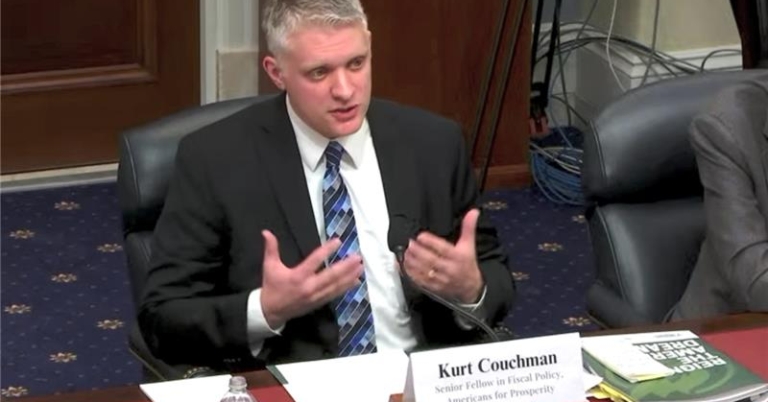
AFP President and CEO Emily Seidel recently sat down with Senior Policy Fellow Kurt Couchman to discuss how his new book, “Fiscal Democracy in America,” shows how Congress can budget more responsibly to strengthen America’s economic future.
Given the diverse needs of our states and local communities, only Congress can truly represent the American people.
I realized that our soaring debt and wasteful spending reflect deeper dysfunction in government. Congress was meant to be the strongest branch, but it has become the weakest.
Electing pro-growth leaders is key, but we also need to fix how Congress works. We can do this by reducing reckless spending and keeping Washington on a budget with legislation that modernizes how Congress manages your tax dollars.
A well-written BBA isn’t just about correcting Washington’s overspending, but also about creating a process that restores long-term fiscal responsibility and healthier lawmaking.
Passing it through Congress and having the states ratify it would show a real national commitment to living within our means — the same way families and most states already do.
At the same time, a BBA should help fix Congress’ bad habits. It would push lawmakers to face tough tradeoffs, have open debates about different options, and repair the broken budget process so Congress becomes more intentional and effective in serving the American people.
Budgeting is about making the most out of limited resources. Families spend their own money on themselves, so they naturally focus on value and efficiency. Legislators, on the other hand, spend other people’s money, giving them far less incentive to be careful.
Unlike family budgets with a few decision-makers, government budgets involve many players — lawmakers, executives, staff, lobbyists, and citizens — so strong institutions are vital to turn competing interests into results that serve the public.
Any BBA that can pass will have a safety valve for emergencies.
Emergency responses have easily met the standard two-thirds threshold for exceptional legislative situations most of the time. When it hasn’t, it’s because of intentional choices for special interest spending alongside the emergency needs.
Some critics understand this and want the ability to misuse emergencies to keep the gravy train flowing. A good BBA prevents this abuse. Meanwhile, even budget hawks would be more willing to support emergency measures if debt growth didn’t risk a devastating crisis.
Unproductive partisan polarization would start to cool down as members of Congress pursue deeper relationships to build coalitions around their priorities.
Congress could get better results by cutting waste and redirecting resources to where they matter most. With fewer political games, it could modernize or end outdated programs.
A more bottom-up Congress would represent more Americans, strengthen democracy, and rebuild public trust by ending obvious waste and dysfunction.
A stronger and more responsible fiscal democracy could remove many of the barriers holding back Americans. Reducing the debt burden would cool interest and inflation rates, giving families more breathing room in their budgets.
Less debt drag would free up funds for productive investments that boost worker pay and overall prosperity. As the risk of a debt crisis fades, a stronger economy would create more opportunities for people to pursue their own American Dream.
Want to learn more? Buy Kurt’s book, “Fiscal Democracy in America,” here.
© 2026 AMERICANS FOR PROSPERITY. ALL RIGHTS RESERVED. | PRIVACY POLICY
Receive email alerts to learn how to get involved